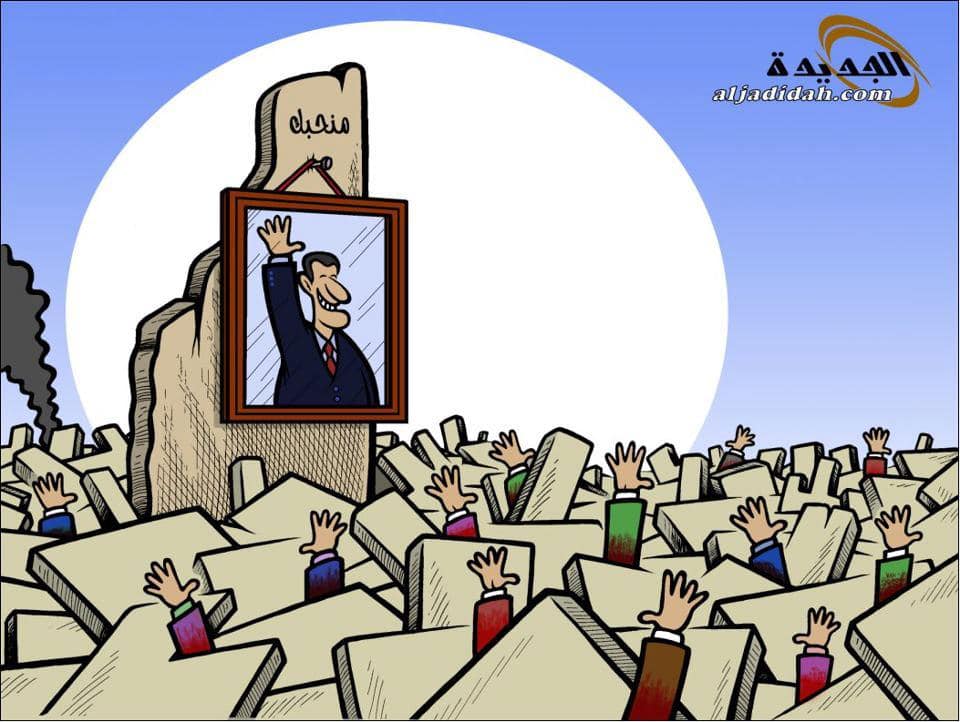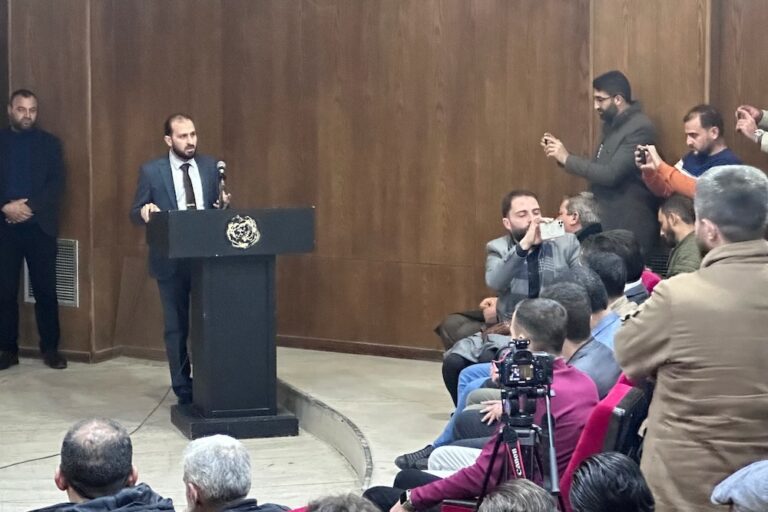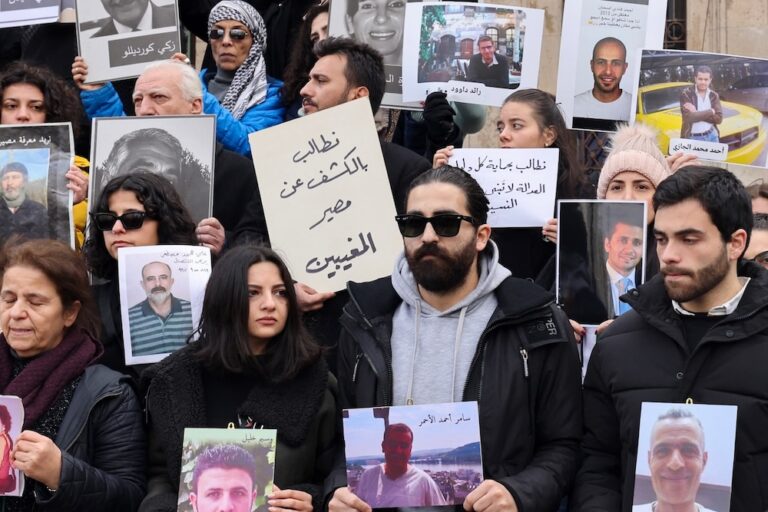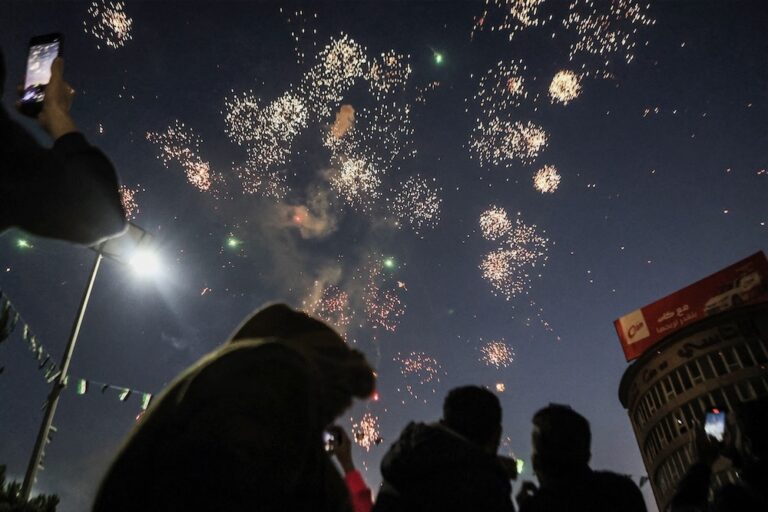Rumours of Akran Raslan's death have been circulating online in recent days and now the sources consulted by Reporters Without Borders say it has been confirmed that he died in detention in 2013, less than a year after his arrest in October 2012, and that his death was almost certainly the result of having been tortured by the Syrian security services.
This statement was originally published on rsf.org on 22 September 2015.
Reporters Without Borders is stunned to learn that well-known Syrian cartoonist Akram Raslan died in detention in 2013, less than a year after his arrest in October 2012, and that his death was almost certainly the result of having been tortured by the Syrian security services.
Rumours of his death have been circulating online in recent days and now the sources consulted by Reporters Without Borders say it has been confirmed.
In July 2013, shortly before his death, he was secretly put on trial by a terrorism court in a trial with no witnesses and no defence lawyers, according to Cartoonists Rights Network International.
“Akram Raslan’s death as a result of torture by the regime’s henchmen is a reminder that Syria has been a hell for journalists for more than four years,” said Alexandra El Khazen, the head of the Reporters Without Borders Middle East and Maghreb desk.
“Professional and citizen-journalists alike are caught between the various parties to the conflict and are terrorized by both radical Islamist groups and Bashar al-Assad’s ruthless regime. We reiterate our appeal to the UN Security Council to end the impunity by referring to the situation in Syria to the International Criminal Court.”
Tortured and mistreated in detention, Raslan was reportedly transferred to a hospital and died of his injuries there. Rumours of his death in detention already circulated in the latter part of 2013 but could not be confirmed at the time.
Raslan was at the offices of the government newspaper Al-Fida’a in Hama when military intelligence officers arrested him on 2 October 2012 over a cartoon critical of President Assad.
Ever since the start of the uprising in 2011, he had been publishing pro-opposition cartoons anonymously on Arabic-language news websites (including those of Al-Jarida and Al-Jazeera) as well as on his own blog and on social networks.
The author of more than 300 published cartoons, he became well known for his commitment to the Syrian people and for criticizing the regime’s repressive practices and human rights violations. In 2013, Cartoonists Rights Network International awarded him its Courage in Editorial Cartooning prize.
Ranked 177th out of 180 countries in the 2015 Reporters Without Borders press freedom index, Syria is one of the world’s most dangerous countries for media personnel, with at least 47 journalists and 135 online information providers killed since the start of the conflict in March 2011.
At least 30 journalists and online information providers continue to be held by the Syrian government while at least 29 other journalists (including nine foreigners) are either missing or being held hostage by Islamic State or other armed extremist groups.



